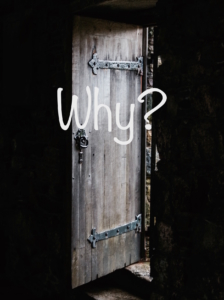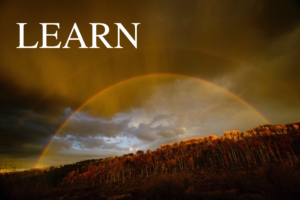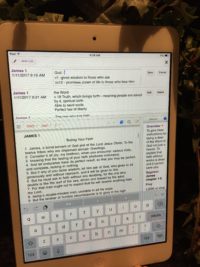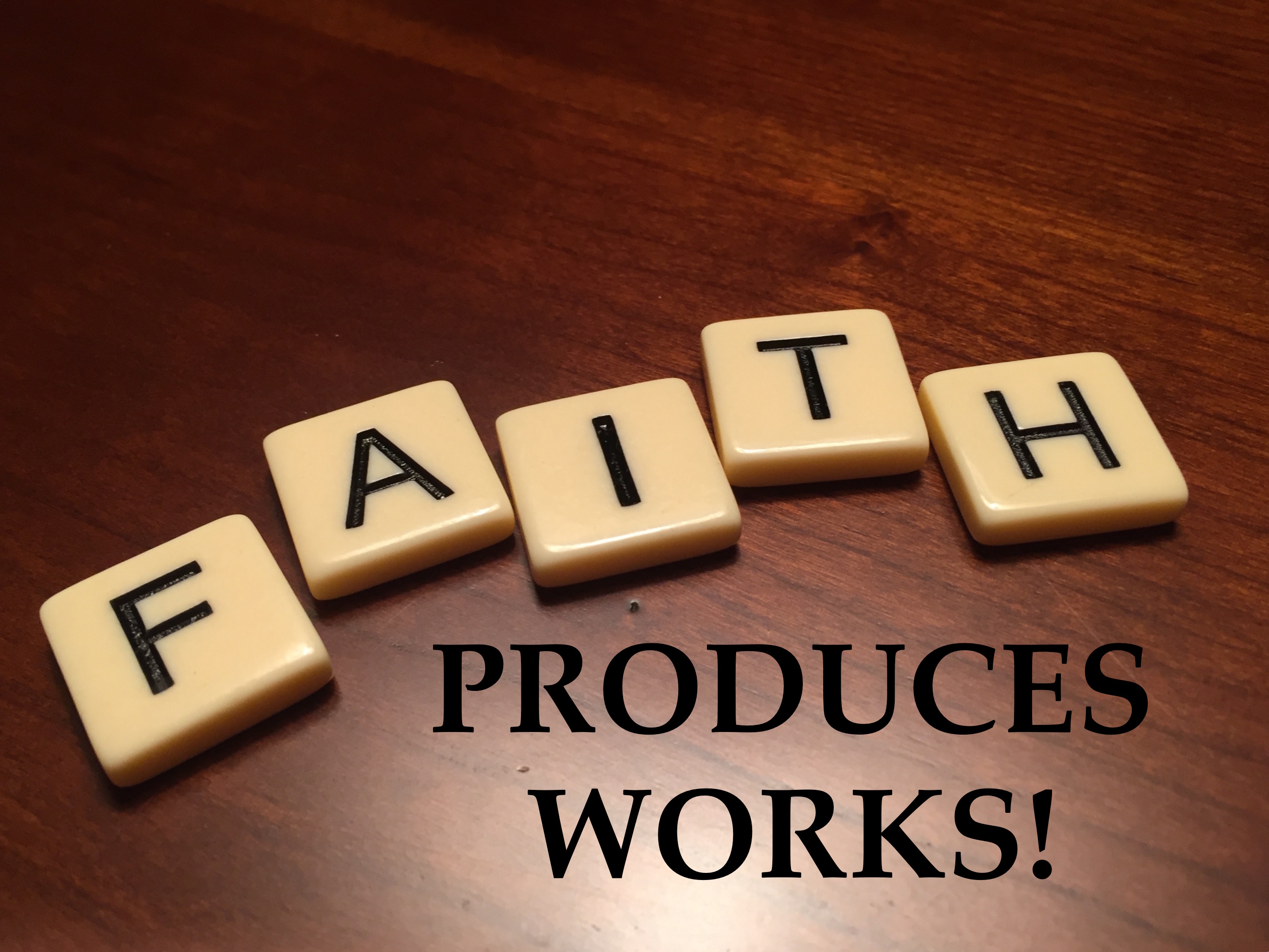James brings up another test. The test of works. James wants to show us the relationship between genuine faith and works. This is ever so critical! For if we are wrong in this matter, then it could threaten our eternal salvation.
Now James is not coming in and saying we are saved by works, quite the contrary. He wanted his readers to understand that salvation by grace produces works. What does he mean by works? In the context of this letter, works is referring to acts in which the man proves his genuineness and his faith. As we are given the gift of righteousness through faith, then it would be righteous acts, righteous actions, righteous conduct, etc. James wants his readers to understand, there is a relationship between what we believe and what we do! He wants his readers to understand there is a faith that saves a person, and there is a faith that is dead because it doesn’t save. James knew full well what this dead faith was all about. Remember he had a faith, he believed in God, but it was useless because it did not save him. James now, explains to us 3 different kinds of faith, and there is only one that is the true genuine saving faith! Let’s take a peek.
Last WEEK
We LOOKED at 13 verses, digging in deep to LISTEN to God teach us about fulfilling the royal law and not being partial.
How did you respond to the Spirit as He spoke to you?
1. LOOK at the truths in James to answer the LIVE question: What kind of faith do I have?
2. Become acquainted with GODcha that will introduce us to certain skills that will open the word of God to us in a life-changing way.
Today
We want to break this paragraph apart by focusing on what God says through His messenger James, by reading these in verses 14-20 with a questioning mindset.
Open GODcha to the Book of James.
NOTE:
If you don’t have GODcha Get It >
Or, you can use your hardbound Bibles and follow along.
You can print off this post and put in a Notebook!
Do You Remember Why James Wrote to His Jewish Brethren?
Keep his purpose in the forefront of your mind as you do your discovery.
What was James’ emphasis?
As We Open God’s Book, Remember To Pray
O Lord, we who have been brought forth by the Word, want to receive Your Word to us in these verses. Oh, we want to understand what James is trying to get across to us about true genuine faith. So we ask that you help us set aside our own personal biases, world-views, human imperfections, and pre-suppositions, opening our hearts and minds to the Holy Spirit’s leading. We ask that You Holy Spirit help us ‘see‘ the Word. Please lead us and guide us into these Truths. Help us understand Lord, what You are saying, and help us to see why You are saying these things. Lord, teach us to think and live in the light of what You instruct us.
Let GODcha lead the way!
Go to the LEARN/LIVE Section
Open the Deeper Discovery
Scroll to the #9 LEARN Questions
#9. As you look at the next test to evaluate your faith, what is faith (don’t assume, look it up)?
What are the different kinds of faith?
Describe the relationship between faith and works.
How does this relate to being a doer of the Word? (v14-26)
Now, what is repeated that helps you see what you will want to concentrate on to help you stay focused?
Let’s LOOK at What God Says About 
Faith and Works
That are Key and Repeated
Open the LOOK Section
Where does GODcha direct you to begin?
Always Begin LOOKING by READING 
![]() Read what God has to say, specifically in verses 14-20 asking the 5W’s and H – who, what, where, when, why, and how questions.
Read what God has to say, specifically in verses 14-20 asking the 5W’s and H – who, what, where, when, why, and how questions.
(We’ll look at verses 21-26 later).
The only way to learn this critical skill – is to do it.
Try it. Give it your best shot and then come back for help.
Pay attention to James’ questions.
And remember to focus on the nouns and verbs.
How did you do?
Let’s dive in and read together.
14 WHAT is the question James asks?
What use is it, (What is the use? What does it profit?)
WHO is James addressing?
my brethren,
What use is it if WHO?
if someone
if someone WHAT?
says
says WHAT?
he has faith
but
that someone WHAT?
has no works?
(Do you see the ![]() contrasts?)
contrasts?)
HINT: it is not faith vs. works.
What is the point James is making?
Can that faith WHAT?
Can that faith save
save WHO?
save him?
(him WHO? )
(The one who says, but doesn’t ‘have’; doesn’t ‘do’.)
15 WHAT is the illustration James gives to make his point?
If WHO?
if a brother or sister
is WHAT?
is without clothing
and
is WHAT else?
in need of daily food,
16 and
WHO?
one of you
(‘you’ WHO? ) One of you brethren.
WHAT?
says
says to WHO?
to them,
(Them WHO?) The one in need.
says WHAT?
“Go in peace, be warmed and be filled,”
and yet
WHO?
you (one of you brethren)
WHAT?
do not give
not give to WHO?
to them (the needy)
not give WHAT?
what is necessary for their body,
(Do you see the ![]() contrast?)
contrast?)
WHAT does James say about ‘saying‘ vs. ‘doing‘?
What use is that?
Then James continues to explain.
17 Even so
WHAT?
faith,
if it (faith) WHAT?
has no works,
it (faith without works) is WHAT?
is dead,
WHY?
being by itself.
(This kind of faith is dead because it is all by itself.)
18 But (here is a ![]() contrast to the above)
contrast to the above)
WHO?
someone (an imaginary objector)
may WHAT?
may well say,
say WHAT?
“You
(you WHO?) One of you brethren who says
WHAT?
have faith
and
I (someone, the imaginary objector)
WHAT?
have works;
WHAT is ‘you’ to do?
show
show WHO?
show me (the someone with works)
show WHAT?
your faith
without WHAT?
without the works,
(Think: how can one show their faith without works?)
and
WHO?
I (the someone with works)
will WHAT?
will show
show WHO?
you
(you WHO?) the one without works
show WHAT?
my faith
show HOW?
by my works.”
(THINK: who might that ‘someone’ be?)
(Who might the ‘you’ be?)
In CONTEXT James replies to this hypothetical scenario.
19 WHO?
You
(You WHO?)
Remember he is addressing the 12 tribes.
It could be ‘the you who says they have faith but has no works’ in v17-18,
Or, another imaginary someone who comes along, claiming a faith
you WHAT?
believe
believe WHAT?
that God is one.
WHO?
You (the one who believes God is one)
WHAT?
do well;
WHY does ‘you’ do well?
because WHO?
the demons
the demons WHAT?
believe,
and
the demons WHAT else?
shudder.
20 But
are WHO?
are you (the one who believes God is one)
WHAT?
willing to recognize,
‘you’ is described HOW?
foolish fellow,
(THINK: WHY is ‘you’ foolish?)
WHAT does ‘you‘ need to recognize?
recognize
that faith
without WHAT?
without works
is WHAT?
is useless?
(THINK: Why is faith without works useless?)
(Do you see the ![]() contrast?)
contrast?)
Whew! Done! Super!
Do you see the value of slowing down and asking questions?
What words popped out?
Were you able to see God’s word more clearly?
Are you not in awe to see what He says when you slow down? Isn’t it wonderful?
Did you see how many times James mentions faith and works?
Understand: Faith (and believe) along with it’s pronouns is mentioned 15 times, and works 12 times.
Understand: James only mentions salvation once, and justified 3 times.
Keep this in mind this week.
Shall We Call It a Day?
As someone has said
“Faith is like calories;
you can’t see them but you can see the results!”
Do others see that our faith works?
We can hear about faith, but the truth is that it must be seen!
![]() Mull over what we just read.
Mull over what we just read.
Perhaps read and re-read for clarity, and consider what God has said through James.
May we consider our ways, (Hag 1:5)!
Notes
Did you have questions?
Put them in your Notes.
Ask God to answer them.
He will.
Once more, I would encourage you to keep up your List on God and Jesus.
You will be so glad you did.
Video Tutorial> Notes Tutorial >
Let’s Close in Prayer
Perhaps. . .
OUR FATHER IN HEAVEN, we are so thankful for Your Word. That razor sharp two-edged sword that is able to discern our thoughts and intentions, that frees us, that cleanses and sanctifies us. May this Word that we just read slowly and with purpose make head way from our heads to our hearts. May we truly ponder and chew on what You are saying to us, about faith. That faith without works is dead and useless. We ask this in Jesus name. Amen!
I want to applaud you for your commitment and time to be with the Lord today. You are doing great!
Next: We will dig in and examine Faith and Works.
Need the GODcha Bible Guide? Go to www.Godcha.org and subscribe.

